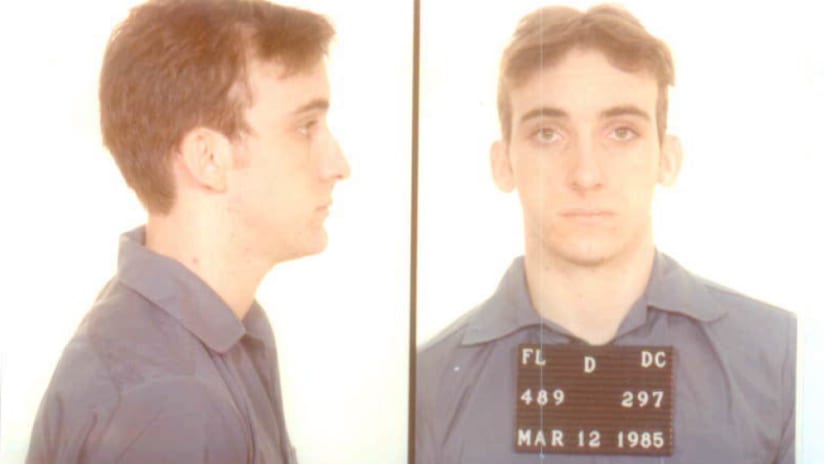A Tampa man who spent nearly four decades behind bars for a crime he did not commit will receive $50,000 for each year he was imprisoned, the maximum sum payable to Florida exonerees.
Robert Earl DuBoise, who was wrongly incarcerated for 37 years until his exculpation by DNA evidence, will receive $1.85 million through a measure (SB 62) the Legislature unanimously approved in late April.
The money will come from the state General Revenue Fund and be delivered to DuBoise through the Department of Financial Services, which CFO Jimmy Patronis oversees.
It’s a pittance for the time stolen from him, but it may perhaps be enough to help him gain footing and purpose in a world that in many ways passed him by.
Gov. Ron DeSantis signed SB 62 on Friday — a meaningful act, considering the legislation would have still gone into effect without his signature.
DuBoise was convicted of a 1983 rape and murder that DNA evidence cleared him of less than three years ago.

Since then, he’s worked to make the best of the time he has left, doing handiwork and odd jobs. He dreams of starting his own business. But with little money on which to get by and a nearly 40-year absence from society, it’s been difficult.
Many tasks simple for most people, like renting an apartment, have proven tall orders for a man with such an enormous gap in his history.
“They don’t understand how I wasn’t on the radar for 37 years,” he told Florida Politics. “It’s like I don’t even exist.”
DuBoise would have been eligible to receive the money outright if not for a proviso unique to Florida called the “clean hands” rule, which denies payment to exonerees with more than one nonviolent felony conviction. Legislation to delete that provision from state statute died on the House floor last month.
Because he had prior convictions for burglary and grand theft unrelated to the murder, DuBoise’s only recourse was what is known as a claims bill, a measure intended to compensate a person for injuries or losses caused by the negligence or error of a public officer or agency.
Claims bills arise when appropriate damages exceed what is allowable under Florida’s sovereign immunity statutes, which shield government entities from costly lawsuits, or are blocked under the clean hands rule.
This year, Fort Pierce Republican Sen. Erin Grall, Vero Beach Republican Rep. Wyman Duggan and Jacksonville Democratic Rep. Kimberly Daniels sponsored claims bills to deliver DuBoise relief.
Democratic Rep. Dotie Joseph of North Miami and Republican Rep. Dana Trabulsy of Fort Pierce signed on as co-sponsors to the legislation.
“The judicial system did its part. They overturned his conviction. They set him free. We have a part to play, and this is it,” Duggan told his House colleagues before the final vote on SB 62 April 28.
“There is a higher law that requires that we seek justice and mercy. No matter how many bills you run, no matter how many votes you take, with this vote you will know that in one moment of sublime grace, you have fulfilled both of those obligations to Mr. DuBoise.”

DuBoise was initially sentenced to death in March 1985 for the rape and murder of 19-year-old Barbara Grams. He was 18. Prosecutors used two pieces of evidence to convict him that are today considered leading causes of wrongful convictions: an apparent bite mark, which a forensic odontologist later concluded not to be a bite mark; and since-discredited testimony from a jailhouse informant.
The Florida Supreme Court vacated his death sentence in 1988 and re-sentenced him to life. By that time, DuBoise had spent three years on death row within earshot of some of Florida’s most notorious killers.
In 2006, he filed a motion for post-conviction DNA testing. By 2018, the Innocence Project and the Conviction Review Unit (CRU) at former State Attorney Andrew Warren’s office began to reinvestigate the case with help from the Innocence Project of Florida. A lawyer at the CRU uncovered preserved, previously untested rape kit samples at the Hillsborough Medical Examiner’s Office, the DNA from which exonerated DuBoise in late 2020.
Last August, Warren announced the DNA had been linked to prisoners named Amos Robinson and Abron Scott, whom he described as “serial killers.” The announcement came just hours after Gov. DeSantis suspended Warren for saying he would not enforce restrictive Florida laws on abortion and gender-affirming surgery.
Since his release, DuBoise has sought reparation for his lost years. He sued the Tampa Police Department in October 2021. The outcome of that case is still pending.
According to the National Registry of Exonerations at the University of Michigan, 85 people in Florida have been proven innocent and exonerated of the crime for which they were convicted since 1989. DuBoise marks just the fourth such person to receive compensation through the Legislature, Daniels said.
“The money that’s given in no way makes up for the years, months, days, minutes and moments lost,” she said before the measure passed. “But it is my prayer that for the 37 years that Mr. DuBoise experienced, this will give him some relief and at least he can take a deep breath.”
The post Gov. DeSantis approves $1.85M payment to Tampa man wrongly imprisoned for 37 years appeared first on Florida Politics – Campaigns & Elections. Lobbying & Government..
